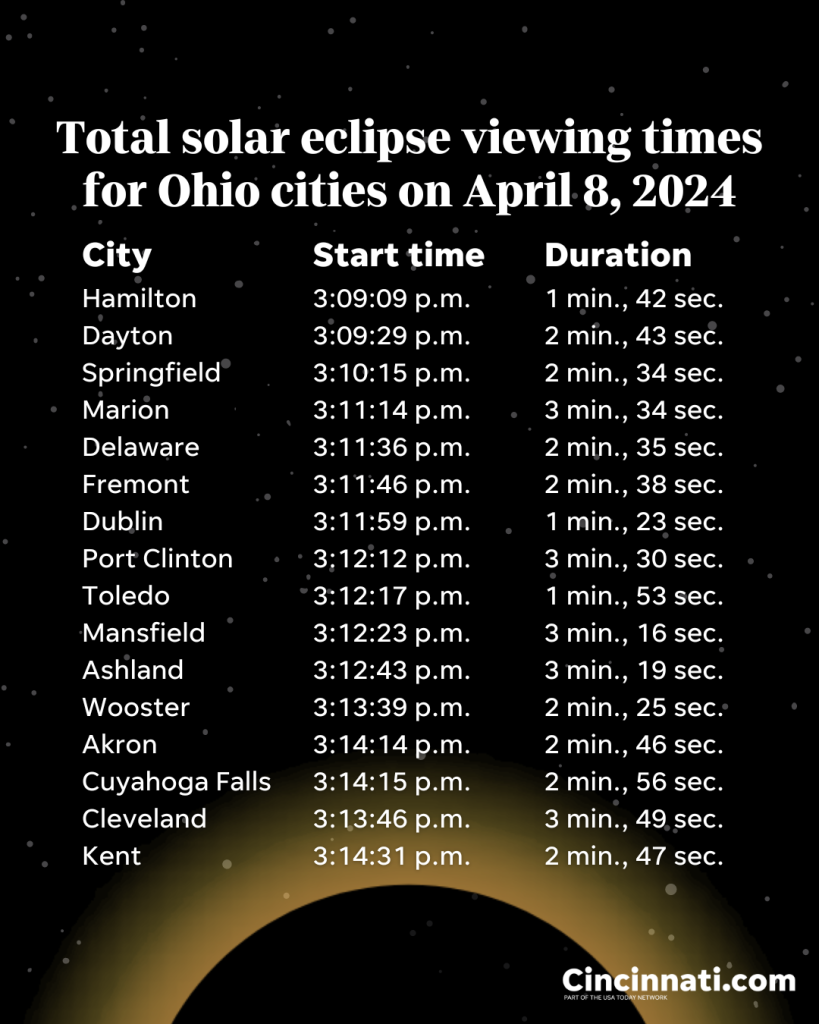Ohio is getting ready for a spectacular solar eclipse event that will darken skies around the state. Even though the path of totality may be smaller than initially thought, it is important to be prepared with proper eclipse glasses or viewers to protect your eyes. Looking at the sun during an eclipse without protection can permanently damage your eyes, so it is crucial to have ISO-certified solar eclipse glasses that block a significant amount of sunlight. Sunglasses are not sufficient for this purpose, and can lead to temporary or permanent eye damage.
The solar eclipse in Ohio will start around 1:53 p.m. and last until 4:30 p.m. The path of totality will pass from southwest to northeast Ohio, with cities like Cincinnati, Columbus, Akron, and Cleveland lying in its path. Each city along the path will experience the total eclipse at different times, with varying durations from a few minutes to over three minutes. It is essential to have the correct glasses and be ready to view this rare celestial event that showcases our place in the cosmos.
The last solar eclipse seen in Ohio occurred in 1806, with the next one expected to happen in 2024. The 2024 eclipse will be a once-in-a-lifetime experience for many viewers, as the subsequent event is not scheduled until 2099. While people in Cincinnati and Columbus will not witness a total solar eclipse on April 8, those along the path of totality will have a unique opportunity to experience this phenomenon firsthand.
It is important to be aware of the signs of eye damage from viewing an eclipse without proper protection. Symptoms of eclipse blindness may include blurry vision, headaches, vision loss, increased sensitivity to light, and distorted vision. If you experience any of these symptoms after viewing the eclipse, it is recommended to see an ophthalmologist for a comprehensive eye examination to determine the extent of the damage.
While using compliant eclipse glasses that meet safety standards, you can look at the uneclipsed or partially eclipsed sun for as long as you wish. The lens of the eye acts similarly to a magnifying glass in focusing light onto the retina, which can cause damage from direct exposure to intense sunlight. Solar retinopathy or retinal burns can occur from viewing a solar eclipse without proper eye protection, leading to permanent damage in some cases.
Damage from looking at an eclipse may be temporary for some individuals, with symptoms easing over time. However, others may experience permanent vision impairment, such as a blind spot or distortion in one or both eyes. There is no specific treatment for eclipse blindness, but monitoring the eyes with an ophthalmologist and allowing time for potential recovery are essential. It is crucial to avoid looking directly at the sun to prevent further damage and protect your eyesight.


